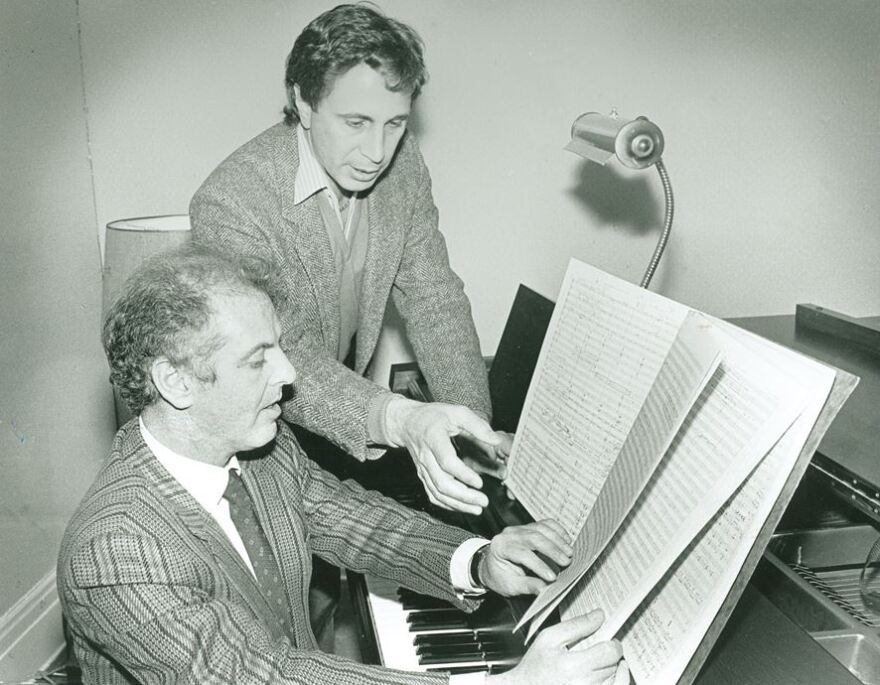Here in Louisville, the Kentuckiana Pride Parade is days away. As you lace up your walking shoes and don your rainbow gear, check out some classical music for the month.
Benjamin Britten: Seven Sonnets of Michelangelo
One of the best love stories in classical music is that of Benjamin Britten and Peter Pears. Partners – creatively and privately – for nearly 40 years, the pair didn’t acknowledge the reality of their relationship until after Britten’s death. The Seven Sonnets of Michelangelo was the first song cycle that Britten wrote exclusively for Pears, and also dedicated to the tenor. Each song is a passionate exploration of romantic love, housed (and perhaps disguised) in Michelangelo’s native Italian.

Laura Kaminsky: As One
Laura Kaminsky broke through operatic barriers with her three-act chamber opera exploring a transgendered woman’s personal evolution. The protagonist Hannah is played by both a baritone and mezzo soprano, singing Hannah Younger and Hannah Older. Since its premiere, As One has become the most produced new opera in North America. Artists from KY Opera came to LPM’s studios last year to showcase some of the poignant work.

Leonard Bernstein: To What You Said…
A long lost Walt Whitman text, found scribbled and unfinished in Whitman’s Democratic Vistas (1871), described as “a repressed poem on a repressed subject,” appealed deeply to Leonard Bernstein in the 1970s, who was experiencing a sexual identity crisis of his own. What better way to work through the moment than a song?

To what you said, passionately clasping my hand, this is my answer:
Though you have strayed hither, for my sake, you can never belong to me
Nor I to you
Behold the customary loves and friendships the cold guards
I am that rough and simple person
I am he who kisses his comrade lightly on the lips at parting
And l am one who is kissed in return
I introduce that new American salute
Behold love choked, correct, polite, always suspicious
Behold the received models of the parlors —
What are they to mе?
What to these young men that travеl with me?
John Corgliano: Symphony No. 1
John Corigliano didn’t mince words when asked to describe the inspiration for his first symphony in 1988: “During the past decade I have lost many friends and colleagues to the AIDS epidemic, and the cumulative effect of those losses has, naturally, deeply affected me. My First Symphony was generated by feelings of loss, anger and frustration.” Corigliano was a self-described reluctant symphonist, but said “My Symphony No. 1 was about world-scale tragedy and, I felt, needed a comparably epic form.”

Julius Eastman: Unjust Malaise
Eastman’s work faces struggles with his identity head on. Being a gay Black man in the ‘60s and ‘70s was enough of a challenge, but operating in the totally white space of classical music added to the difficulty. In 1968 he showed his work to the Buffalo Philharmonic conductor and composer Lukas Foss, who gave him an outlet to premiere his pieces. Buffalo proved to be a pivotal place for Eastman- the Attica Prison uprising happened around those years, and as a result Eastman began using much more politically charged language around his music, writing titles like Gay Guerilla and Crazy Nigger. Much of his work was lost after his early death at age 49 until 2005, when a stack of manuscripts were discovered and published.







